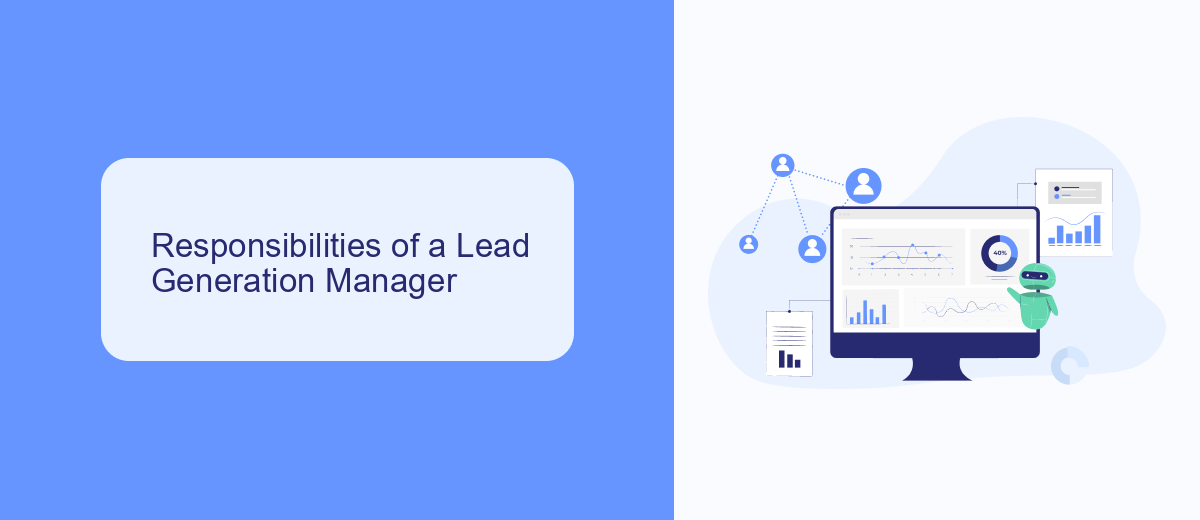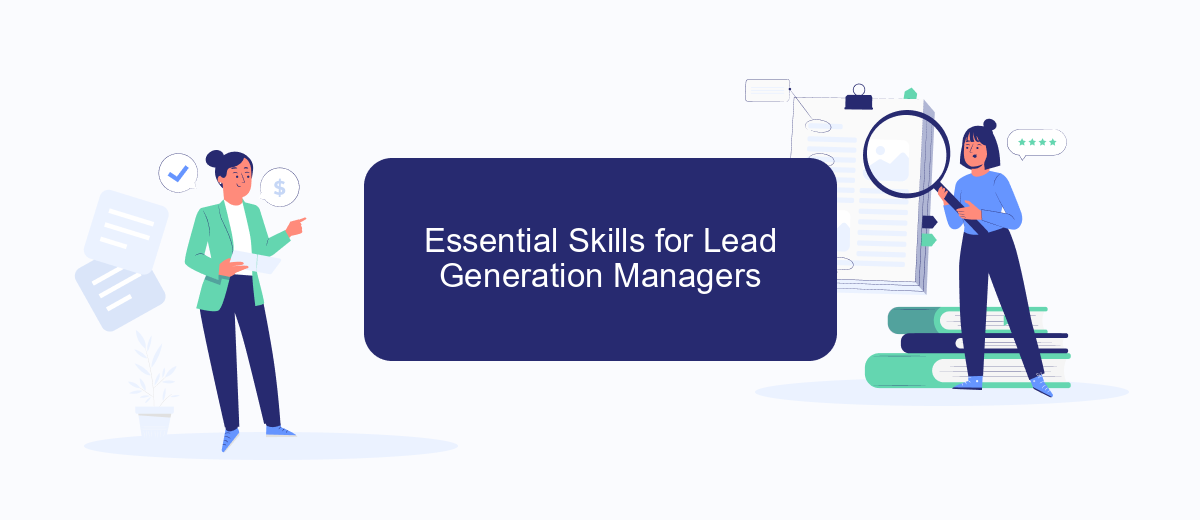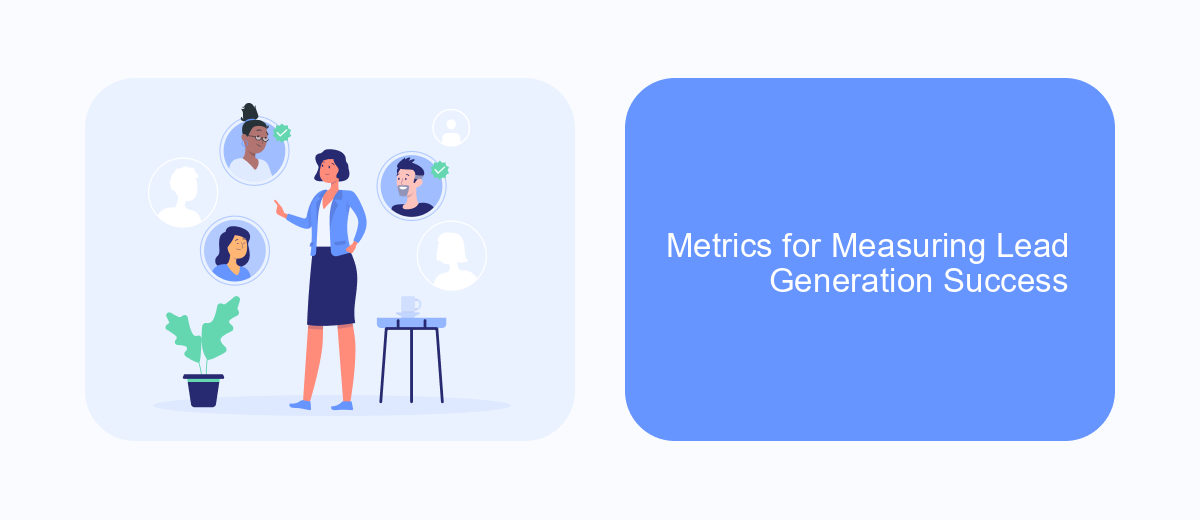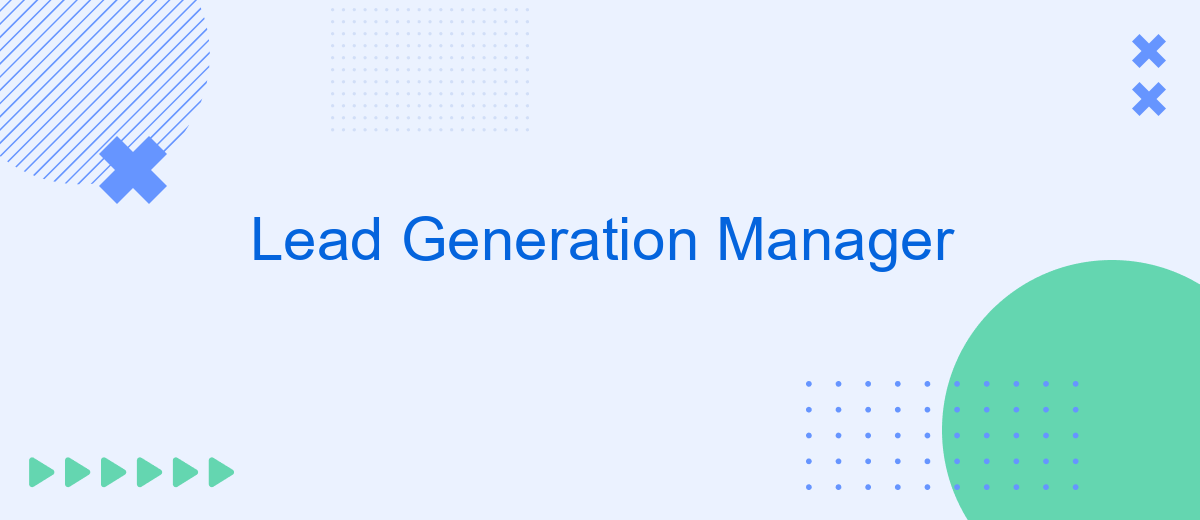A Lead Generation Manager plays a crucial role in driving a company's growth by identifying and nurturing potential clients. This position involves leveraging various strategies and tools to attract and qualify leads, ensuring a steady pipeline for the sales team. Effective lead generation not only boosts sales but also enhances brand visibility and market presence, making this role indispensable in today's competitive business landscape.
Introduction to Lead Generation Management
Lead generation management is a crucial aspect of modern marketing strategies, focusing on identifying and nurturing potential customers. It involves various techniques and tools to attract, engage, and convert prospects into loyal clients. Effective lead generation management ensures a steady flow of qualified leads, which is essential for business growth and sustainability.
- Identifying target audiences
- Creating compelling content
- Utilizing marketing automation tools
- Analyzing and optimizing campaigns
- Integrating CRM and lead management systems
One of the key components of successful lead generation management is the seamless integration of marketing tools and CRM systems. Services like SaveMyLeads simplify this process by automating the transfer of leads from various sources directly into your CRM. This ensures that no potential lead is lost and enables teams to focus on converting these leads into sales. By leveraging such integrations, businesses can enhance their lead management efficiency and drive better results.
Responsibilities of a Lead Generation Manager

A Lead Generation Manager is responsible for identifying and cultivating potential leads to drive business growth. This involves researching and analyzing market trends, identifying target audiences, and developing strategies to attract and convert prospects. They utilize various tools and techniques, such as email marketing, social media campaigns, and content marketing, to generate interest and engagement. Additionally, they are tasked with maintaining and updating the lead database to ensure accuracy and efficiency in the lead nurturing process.
Another critical responsibility is setting up and managing integrations that streamline lead generation processes. For instance, using services like SaveMyLeads can automate the transfer of lead information between different platforms, enhancing workflow efficiency. The Lead Generation Manager also collaborates with sales and marketing teams to align strategies and ensure a seamless transition of leads through the sales funnel. Regularly monitoring and analyzing key performance indicators (KPIs) is essential to measure the effectiveness of lead generation efforts and make data-driven adjustments to improve outcomes.
Essential Skills for Lead Generation Managers

Lead Generation Managers play a crucial role in driving business growth by identifying and nurturing potential clients. To excel in this role, certain skills are essential.
- Analytical Skills: The ability to analyze data and trends to identify potential leads and optimize strategies is vital.
- Communication Skills: Strong verbal and written communication skills are necessary for engaging with prospects and building relationships.
- Technical Proficiency: Familiarity with CRM systems and lead generation tools, such as SaveMyLeads, which helps automate lead integration, is important.
- Marketing Knowledge: Understanding digital marketing techniques and channels to effectively attract and convert leads.
- Problem-solving Skills: The ability to quickly address challenges and adapt strategies to changing market conditions.
Developing these skills will empower Lead Generation Managers to effectively identify and nurture leads, ultimately contributing to the growth and success of their organization. Leveraging tools like SaveMyLeads can streamline the process, making it more efficient and productive.
Metrics for Measuring Lead Generation Success

Measuring the success of lead generation efforts is crucial for any business looking to optimize its marketing strategies and drive growth. By tracking specific metrics, businesses can gain insights into the effectiveness of their lead generation campaigns and make data-driven decisions to improve performance.
Several key metrics can help determine the success of lead generation activities. These metrics provide valuable information on the quality and quantity of leads generated, as well as the overall efficiency of the lead generation process.
- Conversion Rate: The percentage of leads that convert into customers.
- Cost per Lead (CPL): The total cost incurred to acquire a single lead.
- Lead Quality: The potential value and likelihood of a lead converting into a customer.
- Lead Response Time: The average time taken to follow up with a new lead.
- Return on Investment (ROI): The overall profitability of lead generation campaigns.
Utilizing tools like SaveMyLeads can streamline the integration of various lead generation sources, ensuring that all metrics are accurately tracked and analyzed. By leveraging such platforms, businesses can automate lead capture and follow-up processes, ultimately enhancing the efficiency and effectiveness of their lead generation efforts.
Best Practices for Lead Generation Campaigns
Effective lead generation campaigns start with a clear understanding of your target audience. Conduct thorough market research to identify the demographics, preferences, and pain points of your potential customers. Create detailed buyer personas and tailor your messaging to address their specific needs. Utilize high-quality content, such as blog posts, eBooks, and webinars, to attract and engage your audience. Ensure your landing pages are optimized for conversions with compelling headlines, clear calls-to-action, and user-friendly designs.
Integrating automation tools can significantly enhance the efficiency of your lead generation efforts. Platforms like SaveMyLeads simplify the process by automating the transfer of leads from various sources into your CRM system, ensuring no potential customer falls through the cracks. Additionally, regularly analyze the performance of your campaigns using analytics tools to identify what works and what doesn't. Continuously A/B test different elements of your campaigns, such as email subject lines, ad copy, and landing page designs, to optimize your strategies and maximize ROI.


FAQ
What is a Lead Generation Manager?
What skills are essential for a Lead Generation Manager?
How can automation improve lead generation processes?
What metrics should a Lead Generation Manager track?
How can a Lead Generation Manager ensure high-quality leads?
Use the SaveMyLeads service to improve the speed and quality of your Facebook lead processing. You do not need to regularly check the advertising account and download the CSV file. Get leads quickly and in a convenient format. Using the SML online connector, you can set up automatic transfer of leads from Facebook to various services: CRM systems, instant messengers, task managers, email services, etc. Automate the data transfer process, save time and improve customer service.
